Many drivers notice that as the temperature rises, their car’s fuel efficiency often drops. However, by following some essential precautions, you can prevent unnecessary fuel wastage and enjoy better mileage even in the harshest summer months. Let us discuss these step-by-step.
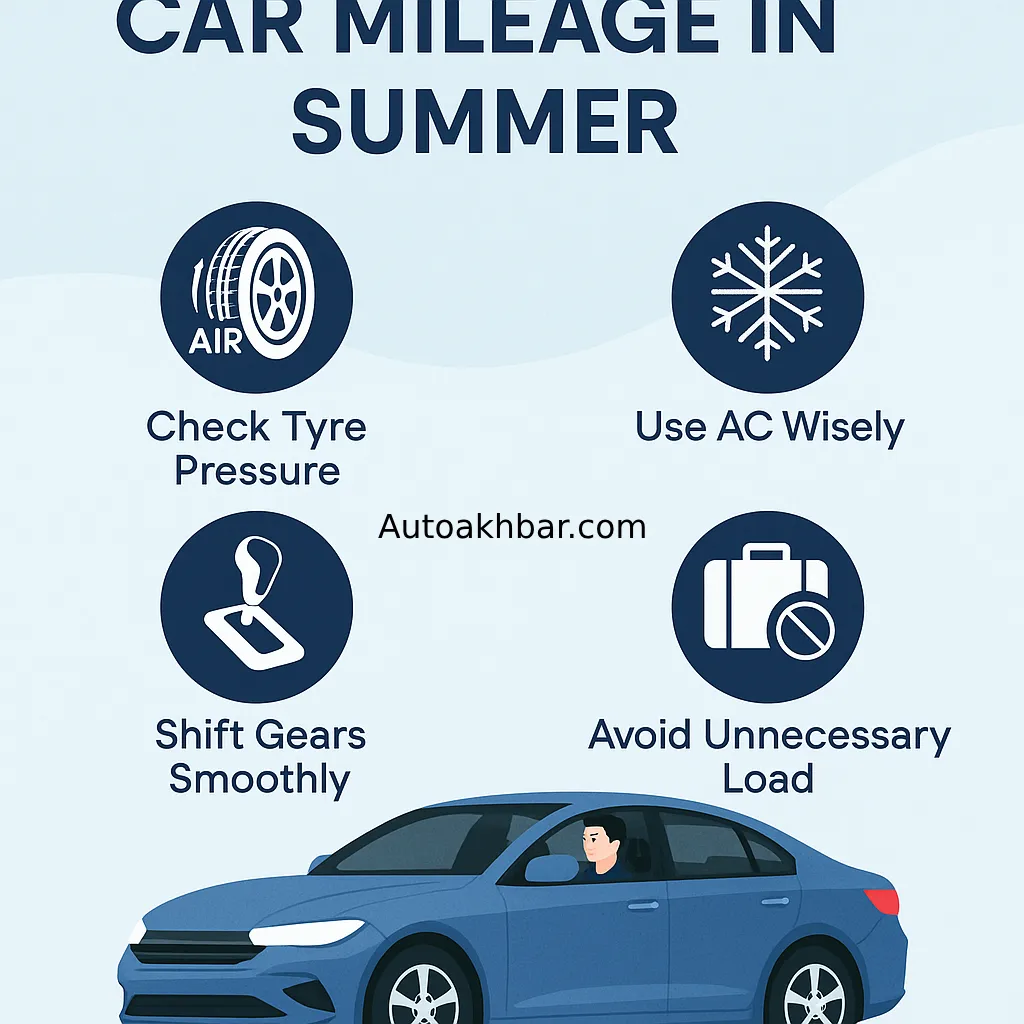
Table of Contents
1️⃣ Maintain Correct Tyre Air Pressure
The foremost and most critical tip is to monitor your tyre air pressure regularly. In summer, the air inside the tyres expands due to heat, which can result in fluctuating tyre pressure. Many average drivers fail to detect this variation. Therefore, it is advisable to get your tyre pressure checked at least once a week.
Always maintain the air pressure as per the manufacturer’s recommended level (generally around 28 PSI for most cars, but do check your manual). Correct tyre pressure not only improves mileage but also enhances road safety and tyre life.
Related read: Types of Automatic Transmissions
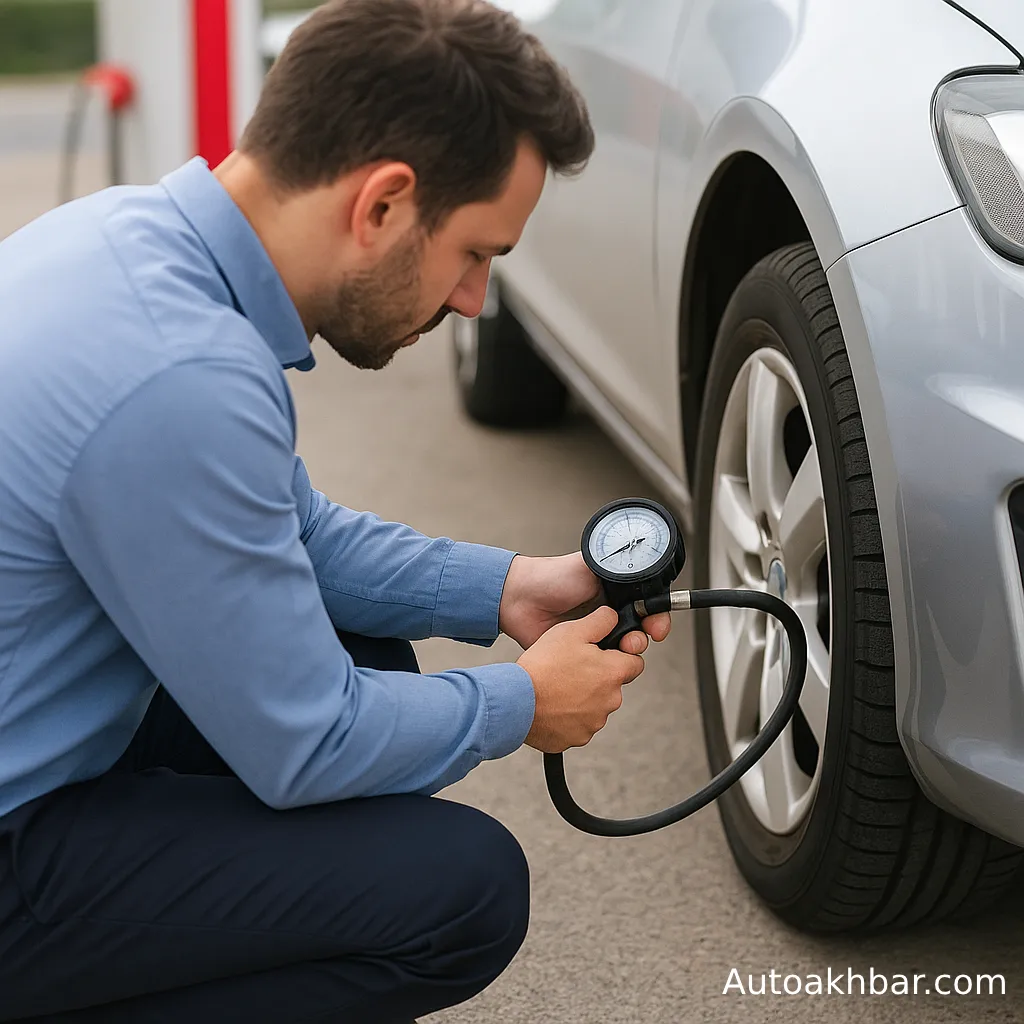
2️⃣ Smart Usage of Air Conditioning
Secondly, be mindful of how you use your car’s air conditioning (AC). While travelling in summer, drivers often turn the AC on at full blast and sometimes open the windows simultaneously for fresh air. This puts excessive load on the AC unit, forcing it to work harder to maintain the desired cabin temperature.
To avoid this, ensure that doors and windows remain shut while the AC is running, and use recirculation mode whenever possible. Proper AC usage can increase fuel efficiency by 2–3%, which can be significant over time.
3️⃣ Optimal Gear Shifting and Speed Control
The third crucial factor is your gear shifting pattern and driving speed. Many drivers unknowingly treat their cars like racing machines, accelerating abruptly and maintaining high speeds in lower gears. This practice drastically increases fuel consumption.
Always shift gears smoothly and maintain a balanced speed. Ideally, keep your car cruising between 70–90 km/h, which is generally the most fuel-efficient range for most passenger vehicles. Smooth driving habits greatly enhance mileage and prolong engine life.
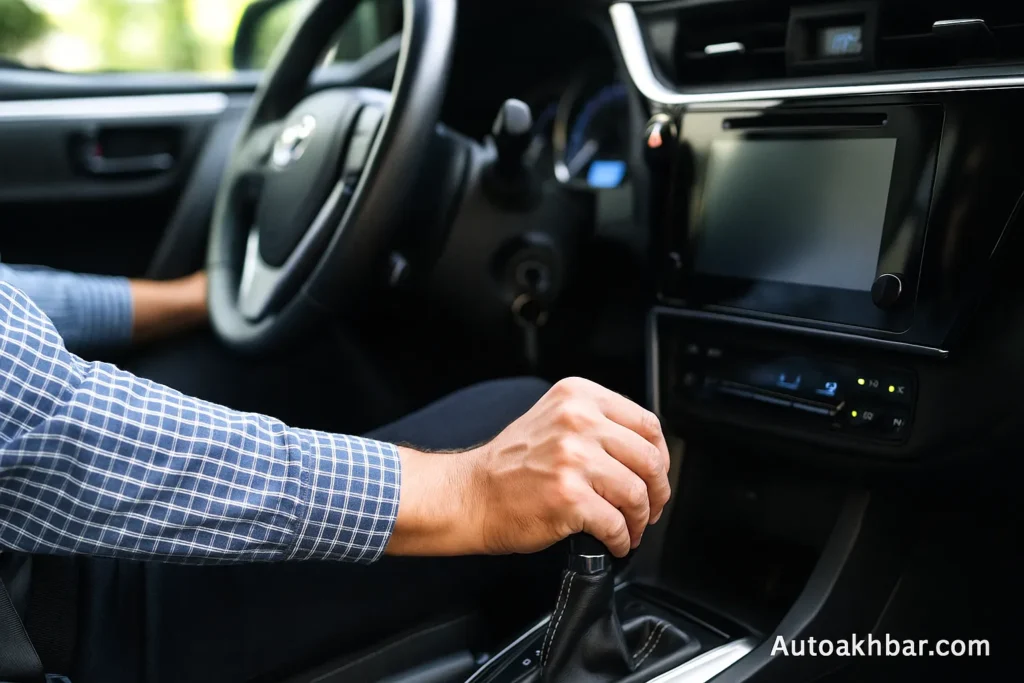
4️⃣ Avoid Excess Weight in the Car
Another important tip is to avoid carrying unnecessary weight in your vehicle. Manufacturers determine mileage claims based on the car’s standard weight, including the driver. If you keep heavy, unused items in the boot or cabin, the extra weight can significantly reduce fuel efficiency.
Remove non-essential luggage and heavy accessories to keep the car light and efficient. By doing so, you can bring your actual mileage closer to the company’s claimed figures.

5️⃣ Follow Regular Car Maintenance
Last but not least, always adhere to your car’s periodic maintenance schedule. A clean air filter, proper engine oil level, and timely servicing ensure your car runs smoothly and economically. Ignoring maintenance may lead to poor combustion, higher fuel consumption, and reduced engine performance.
For maintenance tips, refer to manufacturer manuals or trusted resources like Autocar India.
Conclusion (How to Improve Car Mileage in Summer)
In summary, achieving and maintaining excellent car mileage during the scorching summer months is not just about driving less — it is about driving smarter. By implementing small yet effective habits like monitoring tyre air pressure weekly, using the AC economically and wisely, shifting gears at the right RPM, maintaining steady speeds, and avoiding excess weight inside the car, you can easily witness an improvement in your fuel economy.
Not only does this save you money at the fuel pump, but it also reduces your vehicle’s wear and tear, ensuring a longer engine life and smoother rides. Consistently following these tips empowers you to get closer to the mileage claimed by your car’s manufacturer. Take charge, adopt these measures, and enjoy worry-free driving throughout the summer season.
If you found this guide helpful, please share it with your fellow drivers, leave your thoughts in the comments, and don’t forget to subscribe to Car Knowledge for more practical automotive advice.
Stay safe, drive smart, and save fuel — Jai Hind!

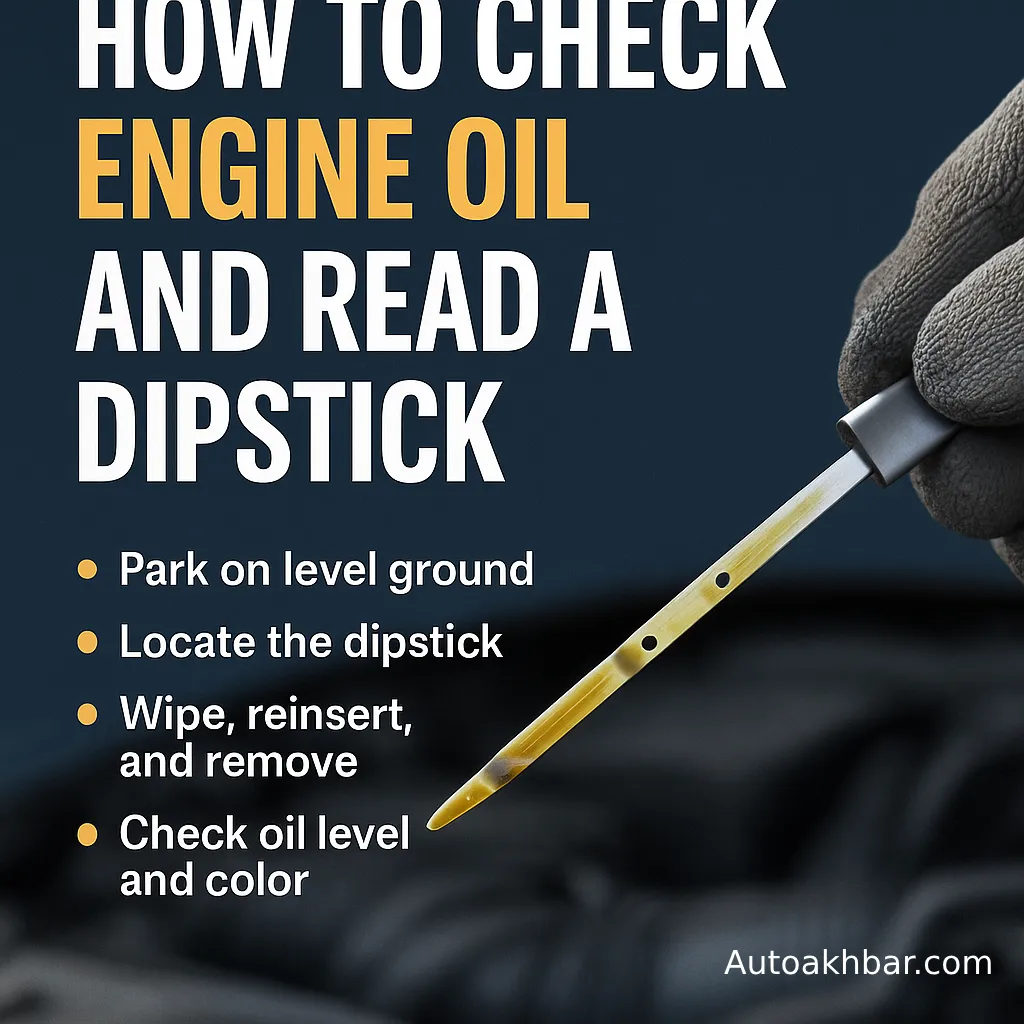
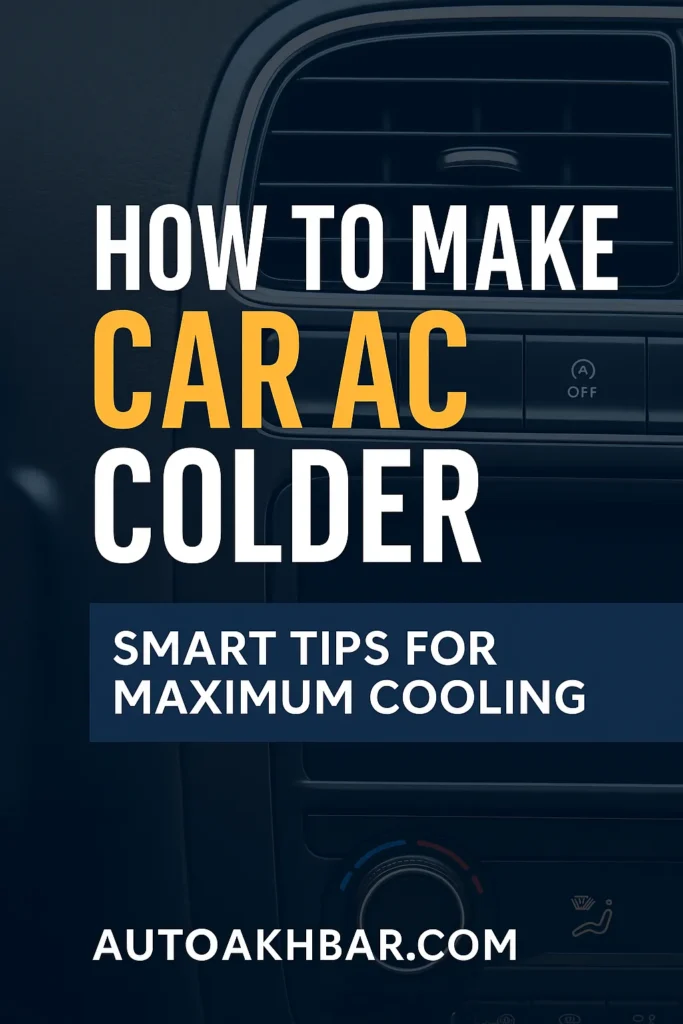
Excellent insights! This blog clearly explains the value of aftermarket upgrades when buying a new car. Very helpful information for making smarter, long-term automotive decisions!